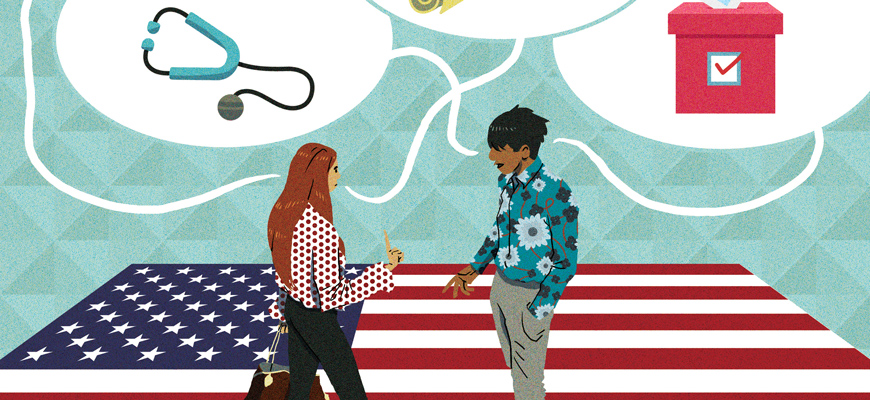
Civics 101: A bridge both ways
Criminal justice professor's mentoring program helps both at-risk teens needing help and the college students acting as role models
Posted on: October 21, 2021; Updated on: October 21, 2021
By Page Ivey, pivey@mailbox.sc.edu, 803-777-3085
Civic engagement is essential to the pursuit of an equitable and prosperous society — and civic responsibility is a cornerstone of higher education, especially at the University of South Carolina.
Whether it’s a journalism professor studying political engagement, a criminal justice professor mentoring future mentors, a business professor inviting an undergraduate into his research on community spread of COVID , UofSC faculty affect the greater community year-round, round the clock and in ways you might never imagine.
When criminal justice associate professor Tia Stevens Andersen arrived at the University of South Carolina in 2013 she encountered an interesting problem — there weren’t enough volunteer opportunities for all of the students eager to help at-risk teenagers.
To meet the demand, she created a mentoring class, then put her students to work in an alternative school. The solution also garnered research dollars to help her collect data about outcomes for youth who have positive mentoring experiences.
“I wanted to harness the energy of my students who were so excited to get involved and make a difference in our community,” Andersen says. “I developed a partnership with Lexington District 2 so students in the new course would mentor at-risk youth who attend the alternative school.”
The alternative school is New Bridge Academy in Cayce, South Carolina. Its goal is to be a bridge for students who have been expelled from a district school to return to that school. And it’s a vital mission. Nationwide, 1.2 million students drop out of school annually, and 1 in 10 male dropouts ages 16 to 24 ends up incarcerated.
“It’s a smaller environment and its purpose is to help address some of the underlying issues,” Andersen says. “Sometimes the kids we work with are 14 or 16 years old and do not have a single high school credit. Their path may involve transitioning to adult education and GED programs; going back to the traditional high school just isn’t in the cards. But for some it is, and that is the goal in giving them the tools to survive.”
Each student at New Bridge is assigned a university student mentor who works with them throughout the semester.
“They are only about four or five years apart in age, and that makes my students a credible messenger,” Andersen says. “They are a young person just on the other side of adulthood, providing guidance, a listening ear and support.”
Before college students get matched with a high school student, they complete five weeks of intensive training that includes papers, quizzes and discussions and culminates with an exam. Andersen supervises the mentorship process.
“We move through everything from philosophical and theoretical foundations to issues of race, class and gender in mentoring, communication skills, mandatory reporting — we are talking about sensitive issues with teenagers,” she says. “My students are learning a lot, and I am helping them make connections to what we are learning in class.”
Andersen received a $20,000 internal funding grant from the Provost’s Office to collect data on the program for two years, and a paper is in the peer review stage. She says she already can see the positive impact her students are having on their mentees — and, anecdotally, she sees the impact the high school students are having on the college students.
“I have many students going into ‘helping professions’ who did not see their path leading that way,” Andersen says, adding that her students typically choose law enforcement careers. “Now they are looking at careers in counseling, school counseling in particular. One former student is shadowing a counselor at the alternative school.”
According to Andersen, even the students who remain committed to law enforcement careers say their experience has changed them for the better, and they report being more likely to volunteer in their communities after graduation.
“Last semester, I had a student all set to be a police officer, and he worked with the most difficult mentee,” she says. “When I was reading what he wrote about the experience, I was just sobbing because it was about making him a better police officer and the personal growth he had experienced.”
Share this Story! Let friends in your social network know what you are reading about